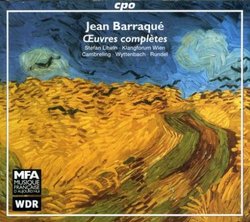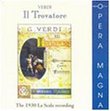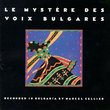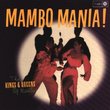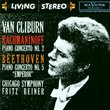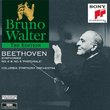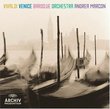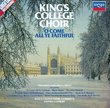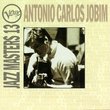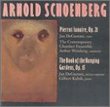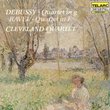| All Artists: Jean [1] Barraque, Sylvain Cambreling, Jürg Wyttenbach, Peter Rundel, Klangforum Wien, Vokalensemble NOVA Wien, Rosemary Hardy, Florian Müller, Stefan Litwin, Christina Ascher, Julie Moffat, Deborah Johnson-Miles, Claudia Barainsky Title: Barraque: Complete Works (Oeuvres compl�tes) - Concerto for Six Instrumental Formations and Two Instruments; "Le temps restitu�" for soprano, chorus and orchestra; ". . . au dela du hasard" for Four Instrumental Formations and One Vocal Formation; Etude p Members Wishing: 1 Total Copies: 0 Label: Cpo Records Release Date: 5/26/1998 Album Type: Box set Genres: Special Interest, Classical Styles: Opera & Classical Vocal, Forms & Genres, Concertos, Historical Periods, Modern, 20th, & 21st Century, Instruments, Reeds & Winds Number of Discs: 3 SwapaCD Credits: 3 UPCs: 761203956920, 076120395692 |
Search - Jean [1] Barraque, Sylvain Cambreling, Jürg Wyttenbach :: Barraque: Complete Works (Oeuvres compl�tes) - Concerto for Six Instrumental Formations and Two Instruments; "Le temps restitu�" for soprano, chorus and orchestra; ". . . au dela du hasard" for Four Instrumental Formations and One Vocal Formation; Etude p
CD DetailsSimilar CDsSimilarly Requested CDs |
CD ReviewsGreat music from a neglected modern master Ian K. Hughes | San Mateo, CA | 07/19/2001 (5 out of 5 stars) "Jean Barraque, a pupil of Messiaen, was overshadowed by his famous contemporary Pierre Boulez during his brief life ( 1928-1973 ) and has remained an "underground" figure in the years since his death. The reasons for his obscurity in the musical world have been attributed by some writers to his reclusive nature, battles with alcoholism and a disastrous, short-lived relationship with a famous philosopher. Of course, those not kindly disposed to "dissonant" modern music ( whether "serial" or not ) will most likely point out his music is not well known because it is just plain bad ( I obviously beg to differ ).I would urge those listeners who have a love ( or respect ) for music composed by earlier 20th century musicians like Bartok & Berg to listen to a few samples of this 3 CD set ( performed by the Klangforum Wien ) of Jean Barraque's complete works. There is a density and compellingly dramatic propulsion to his works ( composed from 1952-1968 ), all ( but one ) large pieces which display a grandeur foreign to most of his contemporaries in the European avant-garde. For all of the unquestionably modern "devices" Barraque employs in his works, one feels a sense of continuity with the "classical" tradition ( IE, if one includes, as I do, Schoenberg and Bartok in that line ); a continuity not present ( for better or worse ) to the same degree in works of the same era by Stockhausen and others. Barraque's music has often been compared to early Boulez ( timbres, explosiveness, and form ). His teacher Messiaen perhaps had an influence on the vast scale of his compositions. I for one, hear many similarities between Barraque and Elliott Carter in their use of intervals. But stylistically, music critic Paul Griffiths has hit the nail on the head regarding the close aesthetic correlation between Barraque and Luigi Nono. Both composers unite a love for tradition with an urge for innovation. Both display to the highest degree the ability to make abstract music cohere in a gripping and dramatic way ( however, nothing suggests that Barraque was particularly allied with revolutionary political movements ). Barraque and Nono ( particularly in his last works ) searched with the utmost artistic "seriousness" for meaning in what was, for them, "the void". And, whether it's relevant or not, I'm fairly sure Nono himself thought highly of his French contemporary and wrote some laudatory comments about him.Barraque's two large scale instrumental works "bookend" his short oeuvre. The "Piano Sonata" of 1952 is often compared to Pierre Boulez' 2nd Sonata but is really a unique creation and for me a far more dramatically effective piece. His valedictory "Concerto" from 1968 is one of the great works from the second half of the 20th century, on the level of Carter's "Double Concerto", Ligeti's "Lontano" and Lutoslawski's "Symphony #3". Barraque's "Concerto", a piece vibrantly alive in an almost organic way, builds through steady contrasts ( masterful orchestration and deployment of tension and release ) on a journey alternately despairing and joyful, toward a conclusion which I can only term a "mystery". Though he composed brilliantly in purely instrumental works, most of Barraque's effort went into a project ( unfinished ) setting music to Hermann Broch's novel "The Death of Virgil". Some of these works are easier to "crack" than others. "Le Temps Restitue" for instance, seems to me to have some connection to Webern's cantatas. Perhaps others hearing this ( tenuous? ) link would find "Le Temps Restitue" easier to manage than other vocal works by Barraque. As far as the performances ( recorded c. 1996 ), the Klangforum Wien are superior to my ears to the older recording of the "Concerto" and "Le Temps Restitue" by the Ensemble 2e2m (conducted by Paul Mefano ). However, the latter recording, being a single CD, does have the virtue of being less costly for those who are cautious about plunking down a larger amount for the complete set (the 2e2m performances are by no means poor, just less refined than the Klangforum Wien ). I would provide a note of caution regarding the CPO recording of the Piano Sonata, played by Stefan Litwin. Poor Mr. Litwin has received a lot of flack for his extraordinarily extended ( 55 minute ) performance, the sluggishness of which was not helped by his lack of color and drama. I would recommend either Herbert Henck or Pi-Hsien Chen on their vastly superior recordings ( trimmed down to some 45 minutes and played with passion and flair )." One of the best 3 disc sets possible. Karl Henzy | 12/31/1998 (5 out of 5 stars) "Marin CA is dead-on about Barraque. For various reasons he's not as well known as other contemporary composers, but he's certainly one of the top five or so of the second half-century. His music is superior to Boulez's, as the instinctual artist is always superior to the theorist (think of Berg and Schoenberg). Marin CA is again right about the company Barraque keeps: Carter and Lutoslawski are the only contemporary composers whose ouvre compare (surely Messiaen, unlike these others, becomes tiresome after a while). To have Barraque's complete works on one 3 disc set is a godsend. It's all good, but especially the great cantata, Le Mort de Virgile. Well worth the price." Would be 5 stars with a better Piano Sonata Ian K. Hughes | 10/12/1999 (4 out of 5 stars) "I strongly recommend this set, and agree with the previous two posters. But the performance of the "Piano Sonata" is curiously slow and lifeless. I had to supplement this box with another recording of the Sonata (P-h Chen, the only other performer I've heard, is much better)."
|

